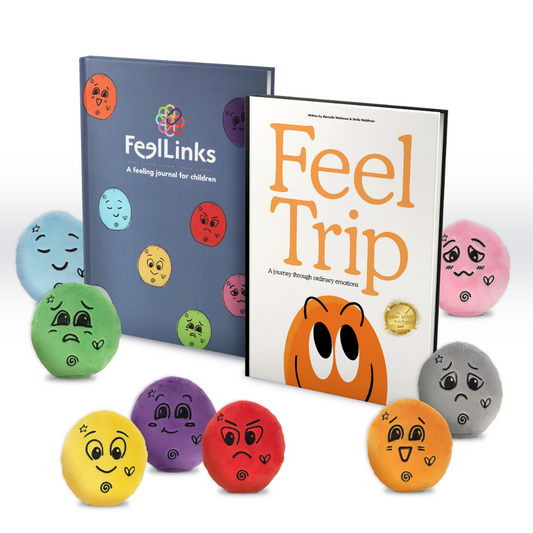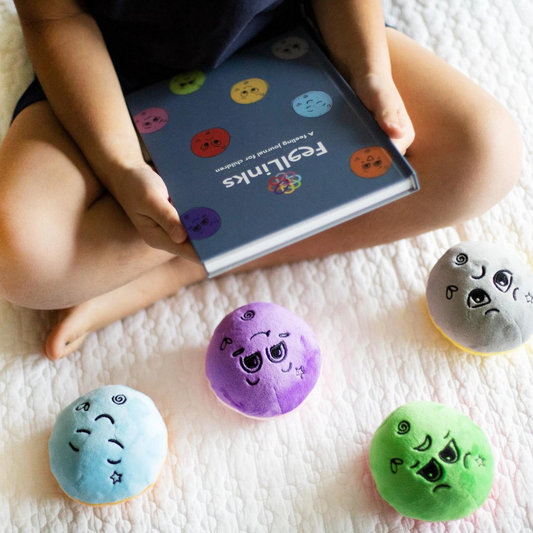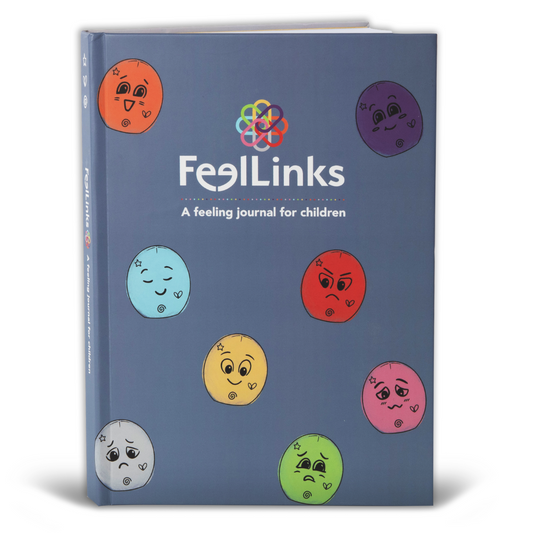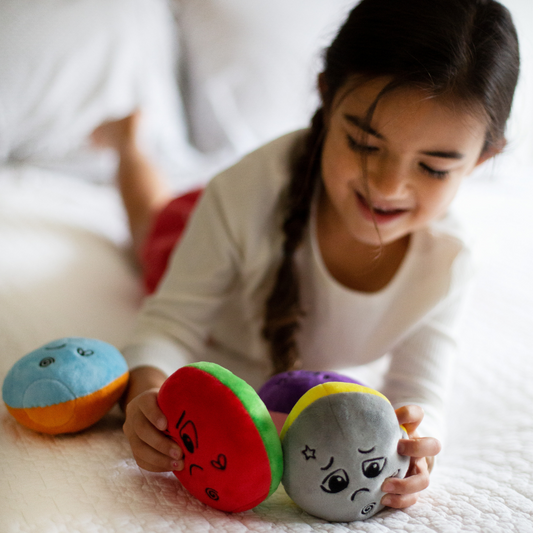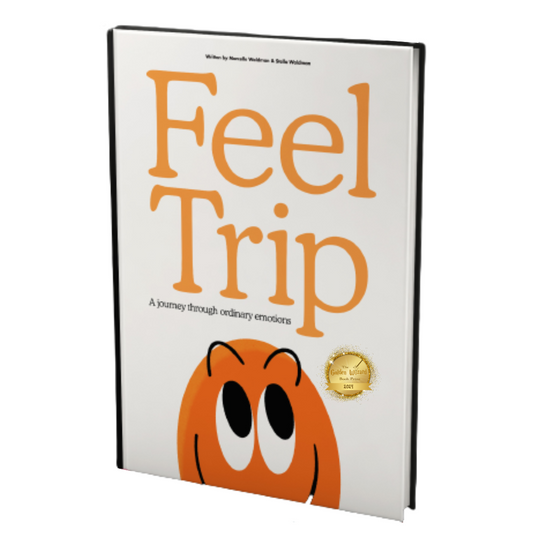Supporting Kids Through Grief and Loss
Share

Yesterday was an extremely difficult day for me, my family and much of our community. We held the funeral of my Papoo Ralph, my grandfather, father figure, great-grandfather to our children. He meant so much to so many.
I bring up this very difficult and personal time in our lives because I want to pay tribute to a man that was extremely giving, loving, sensitive, positive - and truly showed me that all feelings were okay. Whether laughing, smiling or through tears, he always expressed himself honestly and with such heart.
I want to start by sharing an excerpt of the speech I gave at his funeral - I hope it resonates with you.
"Aloha, to everyone here today for my Papoo. My name is Marcelle, and I am his youngest granddaughter. I began today with the word “Aloha” because anyone that knows my Papoo knows thatMaui was one of his most favorite places to go with my Noni and many of their lifelong friends. What you might not know, is the word “Aloha” is a Hawaiian word meaning love, affection, peace and compassion – it also holds a deeper cultural and spiritual significance to define a force that holds together existence. The meaning of Aloha, truly defines the man that my Papoo was –loving, affectionate, peaceful, compassionate, and someone who holds together many things including family, friends, and community."
Our lives are going to drastically change without him here, but these incredible life lessons will live on in all of us. Let’s all do our best to live life like Ralph, with Aloha!
Grief and loss are very difficult for us adults to navigate, so we know how hard and confusing it can be for children. You will mostly likely have children in your life experiencing loss of loved pets or people - whether in the past, present or future - there are ways to support them through the feelings and emotions.
It is very important to understand that children, especially young children, cope with the loss of a loved one differently than adults. While one moment they are crying, anxious, angry, or depressed, the next they might be playing, laughing and smiling. Play can be a coping mechanism for children. Children may have many questions. Do your best to answer them honestly and clearly - do not overload them with information. Depending upon the age of the child, there may or may not be an understanding of the permanence of death. Always do your best to be direct and use the correct terminology – this is the start of developing healthy coping skills related to losing a loved one. Attending a funeral service is entirely up to you and your child (if they are old enough to make the decision). Funerals can help bring closure for us and the same is true for children. My children (9 and 11 years old) were both present at my grandparent’s funerals. In fact, yesterday, both of our children wrote their very own beautiful words to bravely speak at the ceremony. Religious beliefs may also play a large part in how you approach the loss of a loved one. Most importantly through it all, encourage your children to express their feelings. Read books together, look through photos and watch videos - these might open some important emotional conversations. Some children will choose other means of expression through drawing and/or writing about their feelings. FeelLinks plush dolls and journal set can be a great resource for your child during their extremely emotional time of grief. Please remember that children are watching and listening to how you grieve. It is OK for them to see you express your grief, as they are learning from you. Watching you reassures them that the feelings they are experiencing are normal and OK.
It is important to speak with your child’s doctor about any big changes in their life. Be sure to speak with them about the loss and grief your family is experiencing. There are many wonderful supports for YOU and your child – please be sure to seek support when it is necessary.
Aloha!
Marcelle

THE DASH
by Linda Ellis
I read of a man who stood to speak at the funeral of a friend. He referred to the dates on the tombstone from the beginning… to the end.
He noted that first came the date of birth and spoke of the following date with tears, but he said what mattered most of all was the dash between those years.
For that dash represents all the time they spent alive on earth and now only those who loved them know what that little line is worth.
For it matters not, how much we own, the cars… the house… the cash. What matters is how we live and love and how we spend our dash.
So think about this long and hard; are there things you’d like to change? For you never know how much time is left that still can be rearranged.
To be less quick to anger and show appreciation more and love the people in our lives like we’ve never loved before.
If we treat each other with respect and more often wear a smile… remembering that this special dash might only last a little while.
So when your eulogy is being read, with your life’s actions to rehash, would you be proud of the things they say about how you lived your dash?


